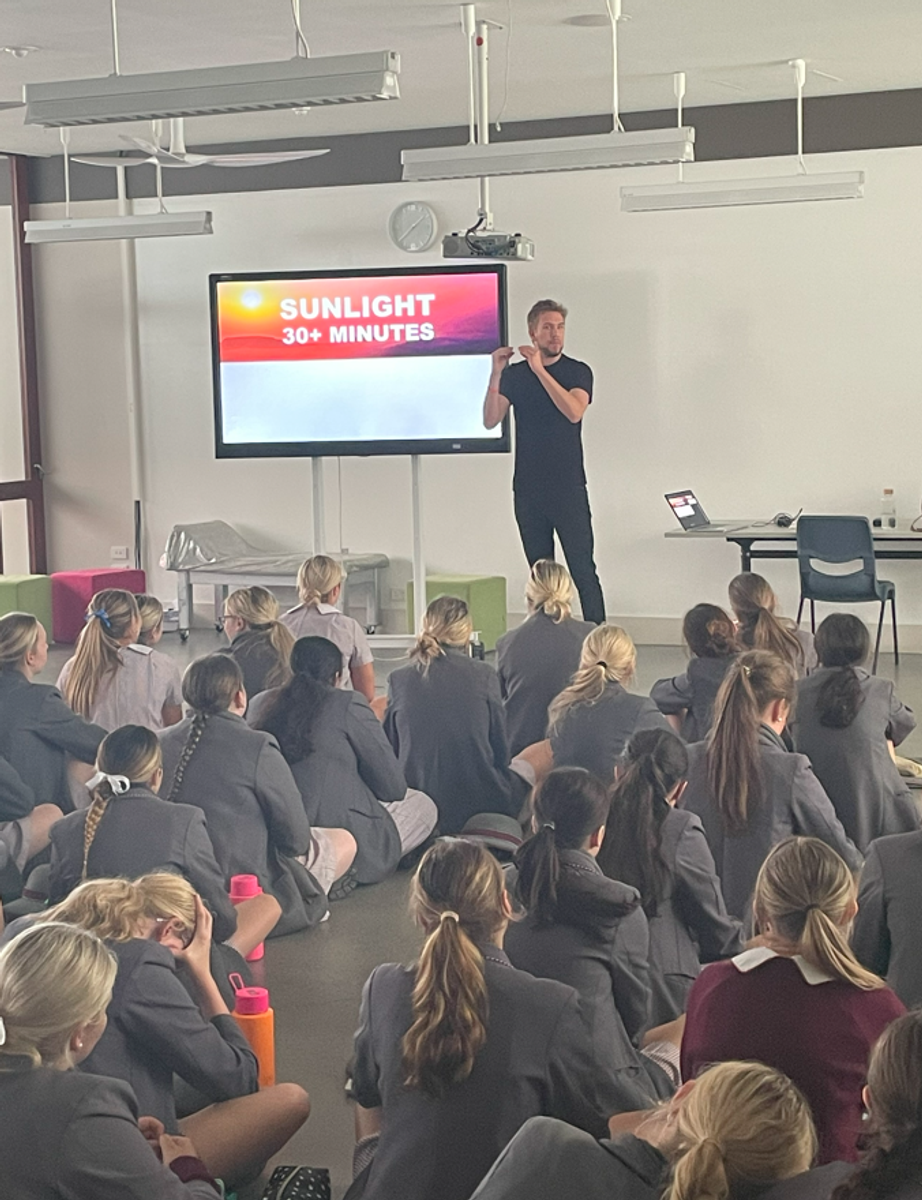Deputy Principal - Student Development & Wellbeing
Kathryn Dendy

Deputy Principal - Student Development & Wellbeing
Kathryn Dendy


Spotlight on Wellness at Mount Alvernia College
This week at Mount Alvernia College we shone the spotlight on mental health with Wellness Week, an initiative of the 2023 Captains. Across the week, staff and students were able to engage in a range of wellness activities culminating in Blue Day on Friday. You can read more about these activities in the Captains’ report but I wanted to share with you how this very important topic of mental health was explored in the Personal Best Program this week.
In the Personal Best lessons on Thursday, students engaged with speakers who emphasised the importance of mental wellness, and who shared with them tips and strategies for maintaining good mental health.


Students in Years 7, 10 and 12 heard from Holly from Livin, an organisation that is committed to delivering mental health education to schools around the country. Livin was started by a group of young people after a friend passed away from suicide and they have as their mantra “It Ain’t Weak to Speak”, which was reinforced to our students.
Holly shared with the students her own experiences with mental health in her teenage years as a result of facing a number of challenging situations. In particular, she struggled with anxiety and this is something she continues to manage to this day. Holly was honest and down-to-earth, which really resonated with our students.
In her presentation, Holly explained mental health as being on a continuum and she emphasised how important it is for people to notice when they are feeling “a little shaky”, and to think about how they can move back to being “well”. This does include seeking help.
Holly highlighted the importance of seeking help in these situations, likening it to how we would do so if we were struggling with our physical health. She stressed that we would see a doctor when we have a cold or sustain an injury, so why wouldn’t we seek similar help if were we feeling low for a prolonged period of time or having constant negative thoughts. Unfortunately, 54% of people with mental illness do not access treatment.
Holly outlined the warning signs and symptoms of mental illness, including:
But she was quick to add that any change in behaviour can be an important indicator for spiralling mental health.
Importantly, Holly shared with the students a number of strategies around self-care, which are key to mental health and wellbeing, including:
Further to these self-care strategies, Holly suggested the following actions we can take if we notice someone isn’t doing so well:
As Holly concluded her presentation, one remark really stuck with me and that was: “If in doubt, reach out.”


A similar message was emphasised in the presentation to Year 11 students by James Peterson whose mantra was to seek help early. He explained this was not necessarily about connecting with a psychologist or counsellor, or ringing a helpline, although all of these options are paramount to staying mentally well, but simply finding a friend and saying how you have been feeling.
James founded breakingFree in 2013 when he was just 18 years old, in memory of his father who was affected by mental illness. James is a fierce believer that we all get to be authors of our own story and he implored our students to make mental health their number one priority. “You could have everything to live for,” he said, “but it doesn’t matter if you don’t have your mental health.”
James emphasised keeping perspective, and minimising time spent with people and at places that cause you stress as key strategies for keeping mental illness at bay. Other strategies presented by James included exercising for at least 15 minutes each day, sleeping for a minimum of eight hours a night and spending 30 minutes or more outside each day. Like our bodies, our minds require rest too, explained James. Also important to keeping mental illness in check is interacting socially as often as possible. James summed this strategy up in the words “put people first” and said this was more important than ever given we are the least social than we have ever been.
Another strategy James shared with our students was to engage in an activity when you find yourself ruminating and having negative thoughts. He suggested finding someone and engaging in a conversation rather than having a negative conversation with yourself.
As always, I encourage you to speak to your child about our speakers and the other activities we have engaged in this week, and to reach out should they require mental health support at any point.